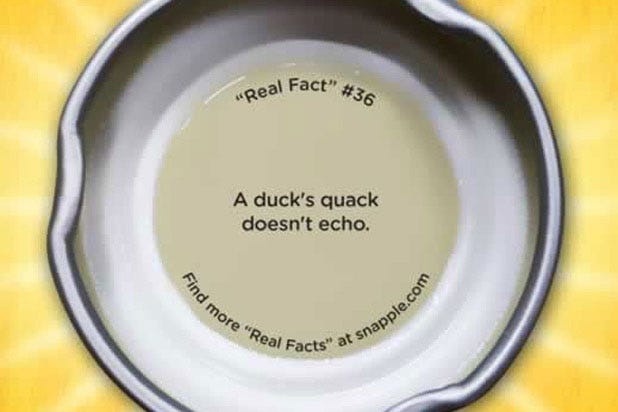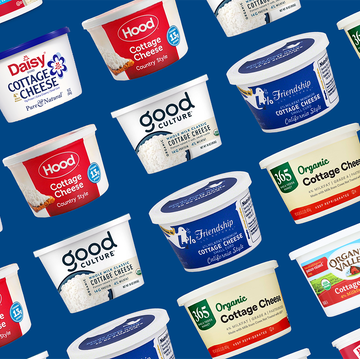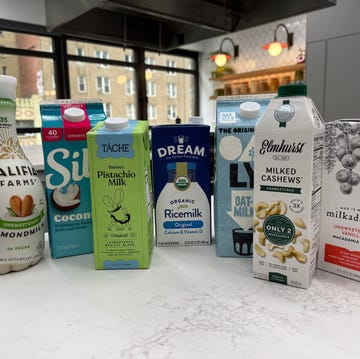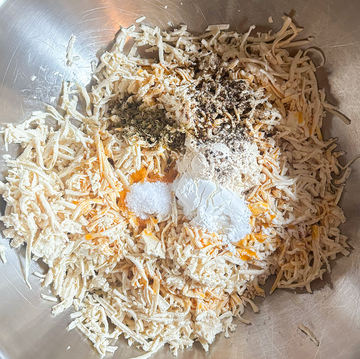7 Snapple Cap Facts That Just Aren't True
Take a look at The Daily Meal's roundup to find out which Snapple "Real Facts" contain more fiction than factoid.
By Jess Novak

While the satisfactory pop of a Snapple twist-off lid is certainly satisfying, and the first sip of refreshing, tangy tea is definitely delicious, we all know that the "huh!" moment you experience when reading a new "Real Fact" is the best part of opening a fresh bottle of the tasty brew. Usually, you can be rewarded for your efforts with a fun, thoroughly accurate little fact. However, Snapple gets their facts wrong more frequently than you might think. Take a look at The Daily Meal's roundup to find out which Snapple "Real Facts" contain more fiction than factoid.
Looking to bust more myths? Check out these 10 weight-loss myths debunked.
Watch Next

Advertisement - Continue Reading Below

I Tried Ninja's Outdoor Pizza Oven

I Blind-Tasted 7 Cottage Cheese Brands & The Winner Is Better Than Good Culture

Here's The Only Non-Dairy Milk I Put In My Coffee

How Hooters Is Plotting A Comeback
Advertisement - Continue Reading Below
Advertisement - Continue Reading Below




![Snapple Real Fact No. 830: The Average Human Dream Lasts Only Two to Three Seconds We spoke with Dr. Robert Stickgold, associate professor of psychiatry at Harvard Medical School, an expert in sleep cognition, to understand more about this idea.
<br /><br />
"It’s hard to know how to measure [the real time of dream length]," Dr. Stickgold told us. "If you mean, ‘How long did the dreams we remember last?’ the answer is probably between a few seconds and 15 minutes. [If you mean] subjective time, this is truly all over the place. We've looked at this and some subjects reported, on average, a subjective length of five to 10 seconds, others of two to four hours, with still others reporting everything in between."
<br /><br />
So there you have it: while we can measure how long rapid eye movement (REM) states last — during which time dreams are prevalent — determining the length of particular, individual dreams is much trickier and more subjective. So we can’t be entirely sure how long individual dreams last, but there’s no evidence to suggest that they are “on average” only 2 to 3 seconds long.](https://hips.hearstapps.com/del.h-cdn.co/assets/cm/15/10/480x320/54f66245da1a5_-_6-fact-830-dreams-snapple-tdm0514-s2.jpg?crop=1xw:1.0xh;center,top&resize=980:*)









